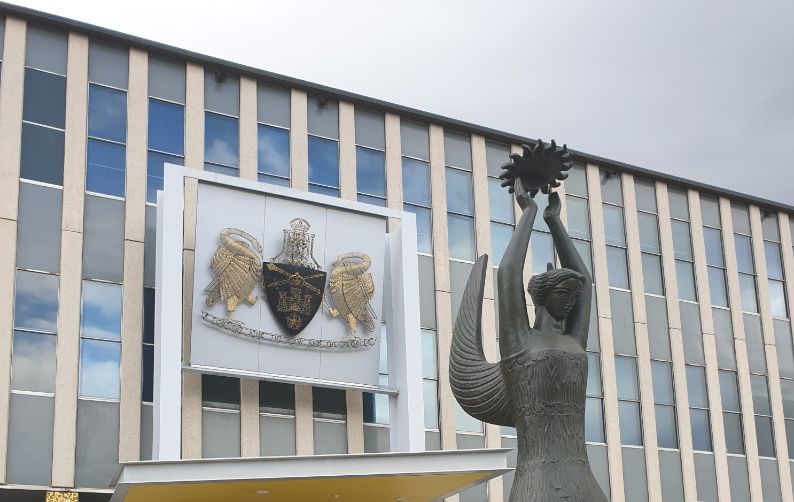History of voting in the ACT
Until 1988, the ACT was directly administered by the Commonwealth Government, but after a battle for independence that saw the creation of the No Self-Government Party, the ACT Legislative Assembly was born – its first parliamentary session was held in 1989.
The ACT’s unicameral system of government (one chamber) was first led by Rosemary Follett, the first Chief Minister for the ACT and the first woman to lead any State or Territory government in Australia.
Before the election…
The ACT has fixed terms, election day is held on the third Saturday of October every four years.
There are five electorates, each with five members.
Before each election, the Electoral Commission checks the population of each electorate and may change borders to redistribute the vote if needed.
When, where and how can I vote?
- Today (28 September) – All voting formats are open
- Saturday 17 October is election day
In person, early voting is available at 15 early voting centres (EVC) across the ACT until Friday 16 October – hours of operation are 9am-5pm, seven days a week with extended hours on Fridays, 9am-8pm.
Postal voting is available those who are unable to vote at a polling booth or EVC. Apply for a postal vote at form.act.gov.au/smartforms/servlet or by calling 6205 0033.
Applications for postal vote must be received by Elections ACT no later than 5pm on Thursday 15 October.
Ballot papers will be sent to your nominated address and must be postmarked on or before 17 October and reach Elections ACT by Friday 23 October.
A list of polling booths, including pre-polling is available on the ACT Electoral Commission website: elections.act.gov.au/elections_and_voting/2020_legislative_assembly_election/polling-places-2020
Mobile voting
Traditionally, Elections ACT have operated mobile polling services for aged care residents, prison populations, and hospital wards.
However, due to the high risk of COVID-19 transmission, this service will not operate this election.
In lieu of this service, Elections ACT will promote postal voting as the preferred option and facilitate the distribution of postal vote packs for eligible institutions.
Can I still register to vote?
Recent legislative change means that although people can no longer update their existing enrolment, eligible Canberrans who are yet to enrol in the ACT can do so right up to, and on, the final day of voting.
However, it is now too late to update your details on the ACT electoral roll. You can check your details are correct on the Australian Electoral Commission website: check.aec.gov.au/
Is voting COVID-safe?
Elections ACT has encouraged early voting to spread out voter attendance across the three-week voting period and reduce large gatherings on the final day of voting, Saturday 17 October.
Recent amendments to the Electoral Act 1992 have removed eligibility requirements for electors to cast an early vote, permitting all eligible electors to vote early at an EVC.
Elections ACT have introduced the following safety measures to minimise risk of COVID-19 transmission:
- Queue controllers will be in place to ensure 1.5m social distancing is maintained among the voting public in queues.
- Floor markers and additional signage will be displayed promoting social distancing and increased hygiene.
- Hand sanitiser stations will be available at entry and exit points.
- Perspex sneeze screen placed at each issuing table.
- Single-use pencils.
- Electronic voting screens will be cleaned with disinfectant after each use.
Which electorate am I in?
A list of suburbs and their correlating boundaries is available at: elections.act.gov.au/electoral_boundaries/which_electorate_am_i_in
Who are the candidates and who should I vote for?
Whoever you like! There are 137 formally declared candidates to choose from, 129 of whom are registered to a political party. All have paid a $250 deposit for their nomination.
If you’re unsure which candidate best aligns with your values, ANU’s new election tool Smartvote might help.
Smartvote asked candidates 32 wide-ranging policy questions.
Voters can answer the same questions on the Smartvote website to receive a ranked list of candidates who best match their political profile: smartvote.org/en/home
Election day – how does it go down?
Election day, Saturday 17 October, is the final day of in person voting and polling places are open from 8am until 6pm.
As soon as polls close, votes begin to be counted. This is called scrutiny.
During this process, votes are counted in each polling place then entered into a computer system for formal checks before the preference distribution begins.
Hare-Clark electoral system
Named after Thomas Hare, creator of the single-transferable, proportional-representation voting system and Tasmanian Attorney-General Andrew Inglis Clark, who implemented the system of voting early in 1903, the Hare-Clark was adopted by the ACT in 1992.
Unlike other states and territories, the ACT and Tasmania use the Hare-Clarke system to elect candidates once they have filled a quota.
There is no above -the-line voting – your preferences are all on you and you don’t have to fill out ALL the boxes, just the minimum stipulated on the ballot form.
- The first preferences for each candidate are counted.
- The quota is calculated – the total number of valid votes (+1) divided by the number of vacancies (+1) = the quota of first preferences needed to be elected.
Once candidates meet the quota, they are declared elected.
If there are still vacancies, votes exceeding the quota from those elected will then flow to their next preference.
This continues until five candidates for each of the five electorates have been elected.
What happens next?
Within seven days of the declared poll, the ACT Legislative Assembly will be formed and begin legislating on Territory and local issues.
All 25 members of the Legislative Assembly meet and vote for a Speaker of the Assembly and the Chief Minister, who, in practice, is the leader of whichever party can form government.



